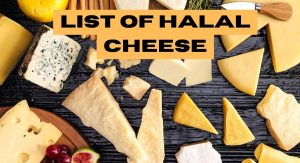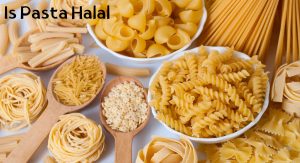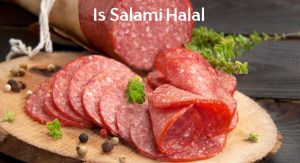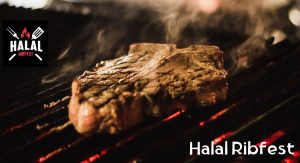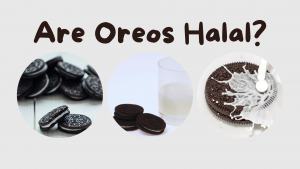What is halal? Halal is a term which features in many cultures around the world, but what does it actually mean? Put simply, halal is an Arabic word meaning permissible or allowed. Halal covers a wide range of activities from what types of food can be eaten, what clothing and accessories can be worn, what businesses and services can be used, what actions are permissible in Islam and so on. In this blog post, we’ll explore what halal actually is and why it’s important.
Basic Definition
Halal is an Islamic term that refers to what is permissible or lawful in traditional Islamic law. It is commonly used to refer to food items, particularly meat and poultry, that have been prepared according to Islamic laws and regulations. Halal foods are those which are deemed acceptable for consumption by Muslims according to the teachings of the Qur’an and the Hadith.
The concept of what is halal has evolved over time, and what constitutes as halal varies depending on the particular sect of Islam which defines it. Halal food items are those that adhere to Islamic dietary restrictions, such as avoiding pork and other forbidden animals, and ensuring the animal was slaughtered according to prescribed Islamic methods. Horse meat for example is halal as long as it is slaughtered correctly.
Generally speaking, halal foods are those that are permissible under Islamic law and are not considered haram, or what is forbidden. Halal food items must also be prepared in a clean environment so as to ensure the food is safe for consumption. By adhering to what is halal, Muslims can ensure they maintain a healthy diet while still being faithful to Islamic teachings.
What is Halal Food?

Halal food is a way of eating that follows the Islamic dietary law. It is derived from the Arabic word ‘halal’ meaning lawful or permitted, and refers to what foods are allowed for Muslims to eat. Under Islamic dietary laws, foods like pork, non-ritually slaughtered meats, and alcohol are not considered halal.
Halal foods are those that meet certain criteria as laid out by Islamic scholars. These include the use of humanely-sourced, free-range and organic ingredients. Additionally, all halal food must be prepared according to certain guidelines, such as being cooked over an open flame, or fried in a non-dairy cooking fat.
The aim of halal foods is to provide a healthy, balanced diet that adheres to Islamic principles. The main types of food included in the halal category are grains, fruits and vegetables, dairy products, poultry and fish, and some processed or packaged foods. Furthermore, any meat or animal by-products must be certified as being from animals that have been humanely and ritually slaughtered.
Consumers should look for the halal certification symbol when purchasing any food to ensure it meets the standards of halal. Halal foods provide an ethical, nutritious and enjoyable way of eating that follows religious guidelines.
By following a specific set of criteria, Muslims around the world are able to enjoy delicious meals while still adhering to the principles of their faith. Whether you’re a Muslim looking for information on what is halal, or simply interested in trying something new, halal food is an exciting and flavourful way to enjoy a meal.
What is Halal Lifestyle?

A halal lifestyle is a way of living in which one follows principles and practices that are consistent with Islamic values. This includes what you eat, what you wear, and how you interact with the world around you. Eating only foods that are halal, wearing modest clothing and avoiding activities such as gambling or drinking alcohol are all part of the halal lifestyle.
Being mindful of what you say and what you do to ensure that it reflects positively on your religion is also essential for a halal life. Ultimately, living a halal lifestyle means one is doing what they can to be more in line with the teachings of Islam, and striving for the ultimate goal of becoming closer to Allah.
This lifestyle not only refers to what an individual does, but also what is consumed. Muslims are expected to eat and drink what is considered halal, which means that the food must come from a source approved by Islamic law. This includes meat that has been slaughtered according to Islamic guidelines, as well as items such as dairy products or vegetables. It is important to note that there are certain foods that are considered forbidden, such as pork and alcohol.
Ultimately, living the halal lifestyle means striving for the ultimate goal of becoming closer to Allah. It involves practicing what is permissible in Islam while avoiding what is forbidden and seeking what is pleasing to Allah Almighty. By doing this, Muslims will be able to lead a life that is in line with what Allah has commanded and reap the benefits of living an Islamic lifestyle.
In short, halal lifestyle is about leading a life that follows what’s permissible in Islam and avoiding what is forbidden. It involves eating halal food, wearing modest clothing, modest makeup and being mindful of what one does and says. By doing this, Muslims can strive to become closer to Allah, and live a more fulfilling life in accordance with what is permissible in Islam.
What are Halal Finances?

Halal finances are a form of Islamic banking that conform to sharia law. This type of finance is based on principles and regulations derived from the Quran and Hadith, which are the teachings of Prophet Muhammad. Sharia law forbids earning or accepting interest (known as ‘riba’), speculation and unethical investments, with halal finance adhering to these principles.
The introduction of halal finance has enabled Muslims to invest their money in a way that is not only socially responsible, but also profitable and secure. Halal investments provide returns to investors without violating the core Islamic principles of justice and fairness.
This type of investment involves investing in businesses or activities that are permissible according to sharia law, such as real estate, oil and gas, gold mining, agricultural products and halal stocks.
Halal finance has continued to gain popularity over the past few years due to its ethical principles and focus on sustainability. It is increasingly seen by many investors across the world as a way of generating profits while upholding their religious values.
Halal finance allows Muslims to invest in a way that is both ethical and profitable, providing an attractive alternative to traditional banking methods. Thus, halal finance is becoming increasingly popular as an investment opportunity for those who adhere to Islamic principles.
Beyond investment, halal financing can also be used for day-to-day banking services such as current accounts, debit cards and payment gateways. These services are designed to provide a secure and convenient way for Muslims to manage their finances in an Islamic-compliant manner.
In conclusion, halal finance is becoming an increasingly popular form of banking and investing that is in line with Islamic values. It provides a socially responsible and profitable alternative to traditional banking and investing, enabling Muslims to manage their finances in a way that is both ethical and secure.
Conclusion
In conclusion, what is halal is a highly personal decision that depends on what is allowed according to Islamic law. Many people choose to follow what is considered to be universally acceptable and this includes abstaining from pork, alcohol and certain other foods as well as engaging in certain practices such as prayer five times a day.
It’s up to individuals to decide what they consider to be halal and what is not. The key is understanding what is allowed under Islamic law and following those guidelines in order to maintain purity in one’s life.
By considering what is allowed, we are able to make more informed decisions about what is truly halal and what may not be according to Islamic law. Taking this into consideration, what is halal is ultimately a personal matter that requires understanding of what’s allowed and what isn’t for each individual.
Source
Reference – The above information is verified via Halal Monitoring Committee.


